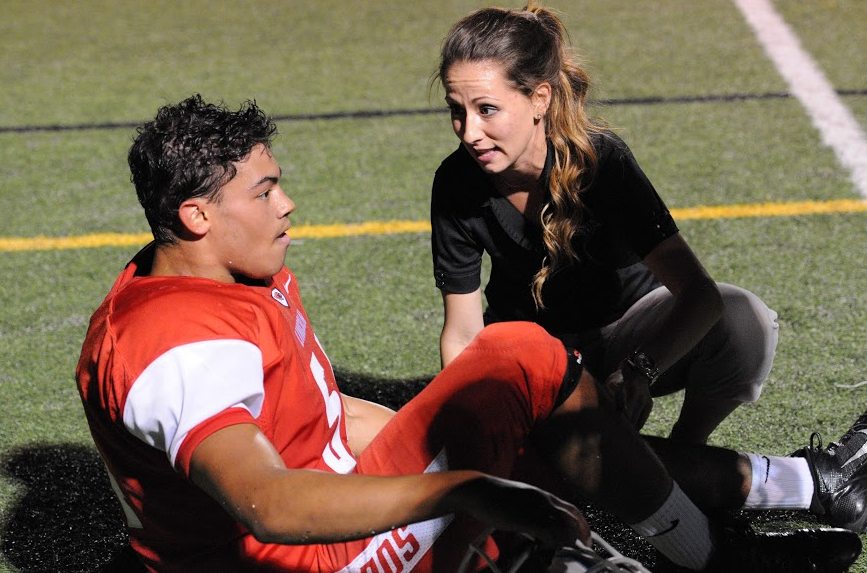First down to first aid
It’s 9 p.m. at Mike Walsh field and the atmosphere is electric. The players are ecstatic, the flock is cheering with anticipation of a win. But on the sidelines, one person is watching the moves of every player on the field, knowing that a collision could happen out of nowhere.
Lincoln’s athletic trainer Jessica Martschinske knows that sports are fun, but she also knows they can be deadly. That explains why she watches from the sidelines at Lincoln’s most dangerous sporting events.
Martschinske has always had a joint interest in sports and medicine.
“I love sports and the being a part of a team aspect of this profession,” she says. “I also love medicine as it pertains to orthopedics.”
She graduated from the University of Idaho in 2009 with a degree in athletic training. She became a certified athletic trainer and then attended attended the University of Connecticut for her master’s degree in kinesiology. She was drawn to UCONN because its program focused on prevention of sudden death in sport and exertional heat stroke specifically, the topic of her final thesis.
To further beef up her skills, Martschinske attended Emory University’s one-year sports medicine residency program. Since then, she has worked at Orthopedic and Fracture Specialists in Beaverton. But because her education concentrated on the prevention of deaths of young athletes, Martschinske wanted to assist a high school as well.
“Orthopedic and Fracture Specialists knew I had the interest to work with a high school,” she says. “They were wanting to help Lincoln and were already talking to them when I started working there.”
Because preventing injuries in sports could save a student’s life, Martschinske isn’t the only person on the scene to help players. Coaches, assistant coaches and referees are all required to take a concussion-training course created by the Center for Disease Control. Still, Martschinske worries about high school sports programs without proper medical assistance at the ready.
“What worries me is that in some states, and specifically the state of Oregon, it is not required that a high school have a full-time athletic trainer on staff. Twenty minutes to get the AED from a locked school vs. medical attention with an ATC within a few minutes could be the difference between life and death. It’s terrible to hear about a kid with a head injury who heads home when they should have been sent to the ER.”

